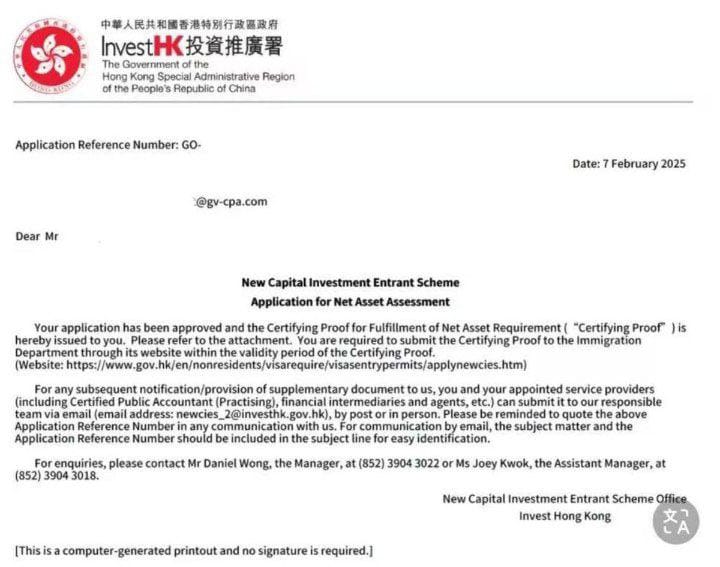Table of Contents
Hong Kong has approved cryptocurrency as proof of assets for investment immigration applications for the first time, marking a significant milestone in the region’s financial policy, according to news site WuBlockchain.
Two recent cases, one involving Bitcoin and the other Ethereum, have successfully met the HK$30 million (US$3.8 million) asset requirement under the New Capital Investment Entrant Scheme (New CIES), the news outlet reported, citing Simon Siu. The Hong Kong accountant said that on February 7, 2025, a client successfully used Ethereum holdings valued at HK$30 million to apply for investment immigration through InvestHK, a government agency responsible for attracting foreign investment.

This follows an earlier case from October 2024, when another applicant used Bitcoin to meet the same financial threshold. Both individuals are reportedly from mainland China.
The approval process required an internal review by the Hong Kong Investment Promotion Agency, as cryptocurrency had not previously been considered eligible proof of wealth. Applications were reportedly assessed based on strict conditions, including the requirement that digital assets be held in cold wallets or stored on reputable exchanges such as Binance.
Traditionally, applicants under the New CIES have been required to demonstrate their net worth through more conventional assets such as stocks and bonds. While the successful acceptance of Bitcoin and Ethereum as proof of funds is a breakthrough, it remains unclear whether direct cryptocurrency investments or crypto-based exchange-traded funds (ETFs) will be recognized as eligible investment vehicles in the future.
Industry experts see this development as a step toward greater institutional acceptance of digital assets in Hong Kong. With additional applicants currently undergoing the approval process, this shift may set a precedent for broader adoption of cryptocurrencies within the region’s immigration and financial sectors.







